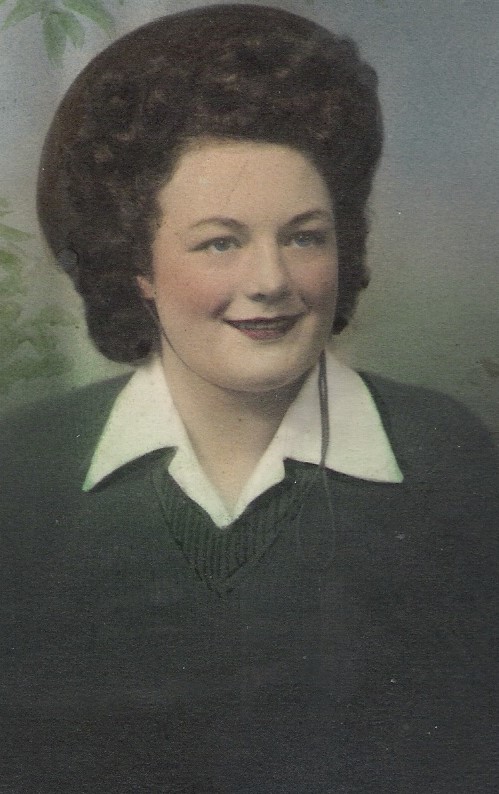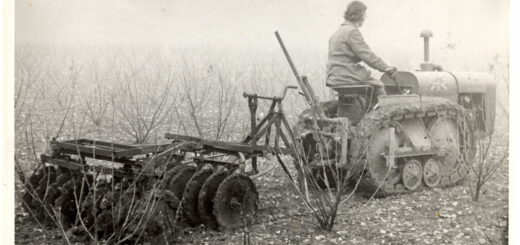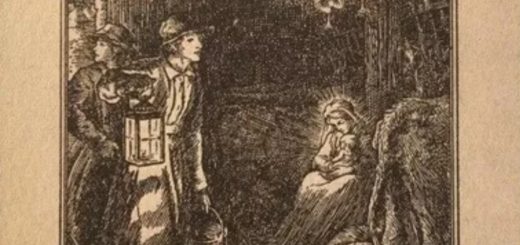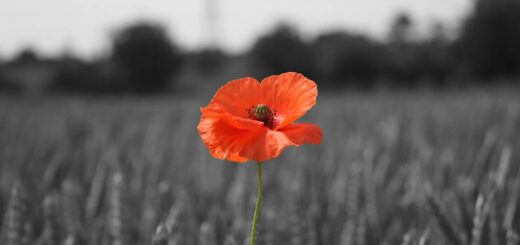Marking the 80th Anniversary of VE Day
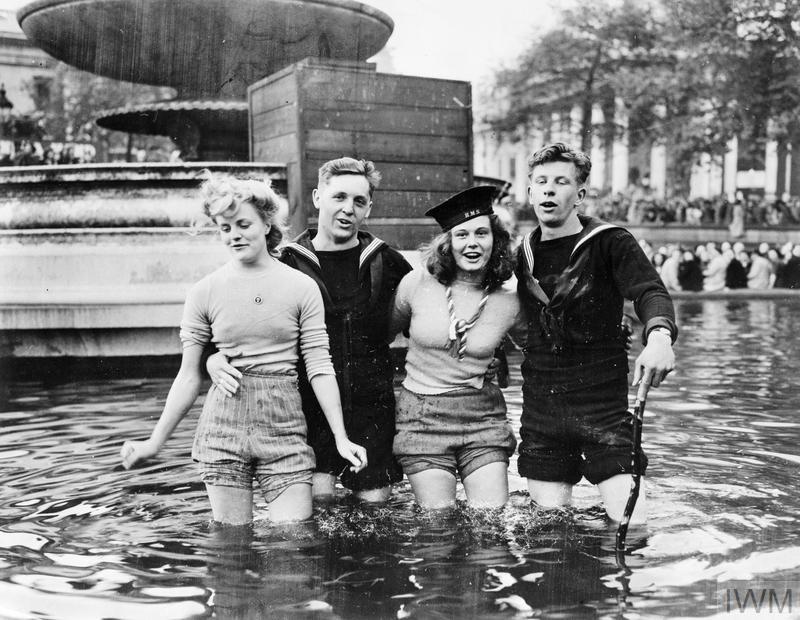
Source: © IWM EA 65799
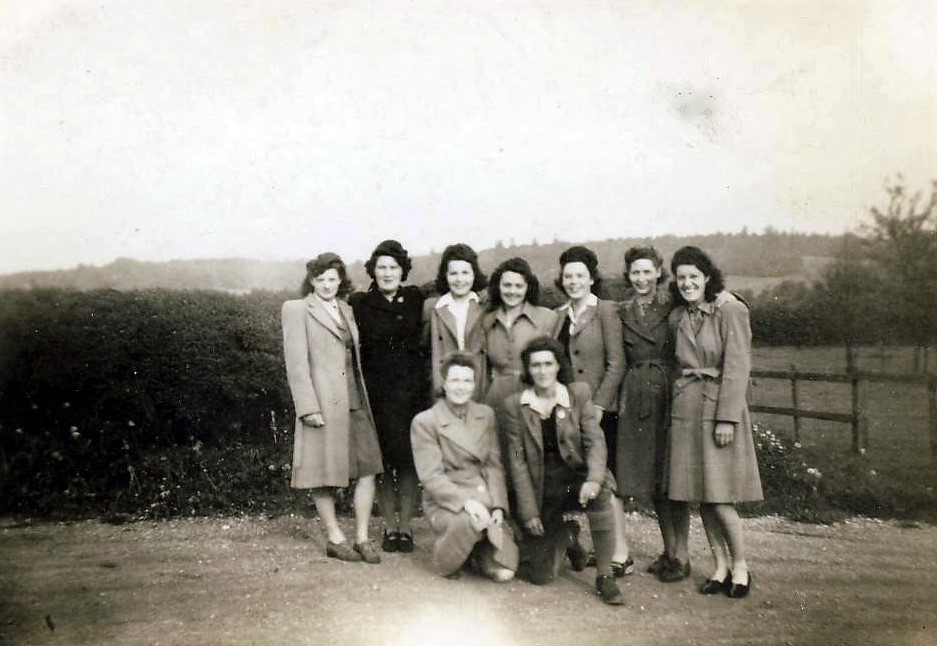
Source: Brian Ellis, Mary’s son.
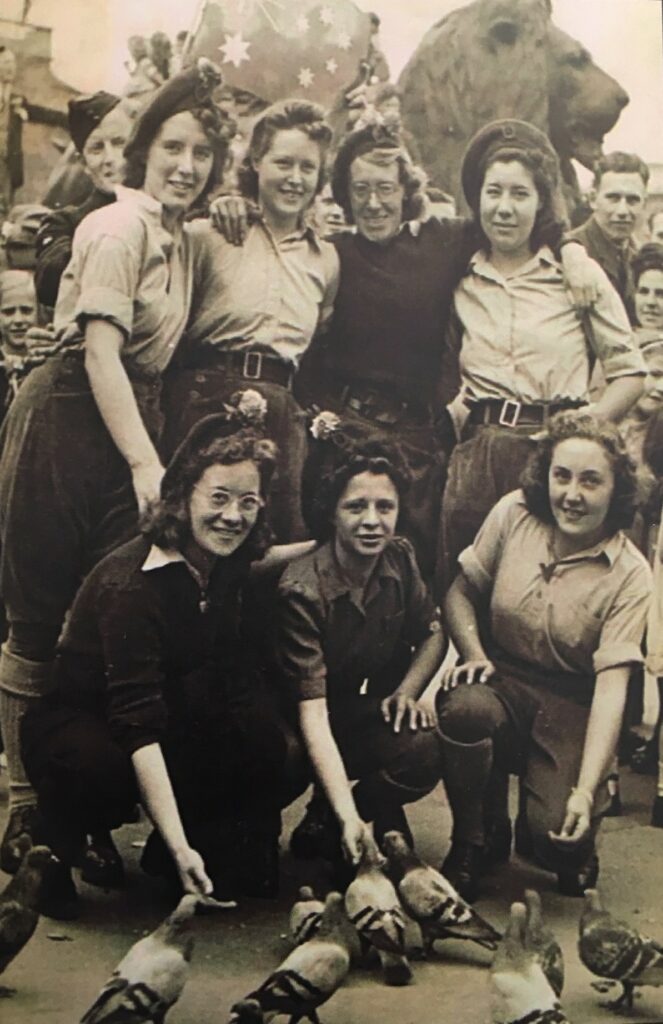
Source: Mark Kleanthous, Esther’s son
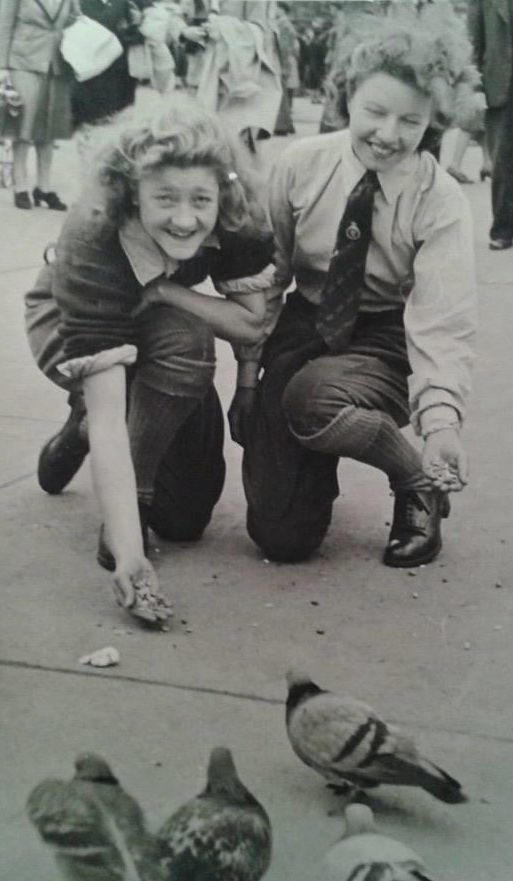
Source: Gwyneth James
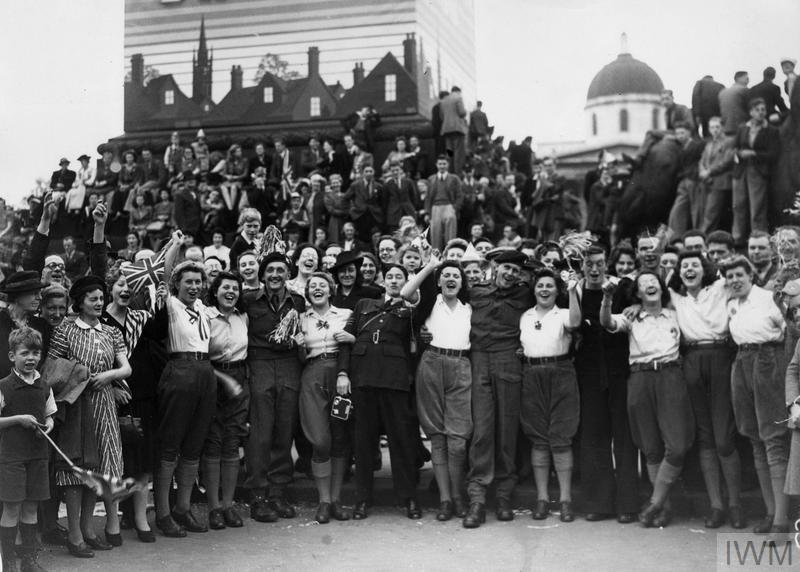
Source: © IWM, HU 49571
![A group of Bedfordshire land girls who joined the crowds celebrating the VE Day radio announcement at 3pm in St Paul's Square, Bedford, 8 May 1945. 'Victory in Europe [VE] Day' marked the end of the Second World War in Europe. The Allies continued fighting in Japan in the Far East until VJ Day [Victory over Japan] on 15 August 1945. Source: Bedfordshire Times. Courtesy of Stuart](https://www.womenslandarmy.co.uk/wp-content/uploads/2015/05/VE-Day-St-Pauls-Square-1024x788.jpg)
Source: Bedfordshire Times,
courtesy of Stuart Antrobus
The 8th May marks 80 years since VE Day. Victory in Europe Day was a momentous day, marking the end of the hostilities in Europe. For many, VE Day was a day filled with mixed emotions; a sense of joy and relief, but also sadness and loss as people remembered those who did not survive to join in the celebrations.

Land Girls and Lumber Jills were just some of the women who came together to celerbate VE Day. Indeed, one of the most iconic images from the day is the above photograph of two Land Girls joyfully playing around in the fountains in Trafalgar Square, along with two sailors. As some of you might already know, these two women were called Cynthia Covello and Joyce Digney (née Brookes). They were two Land Girls who worked on farms together in Surrey. After hearing about the celebrations for the First World War Armistice, they pledged to each other that, if they both survived to see it, they would travel to London to join in the victory celebrations. This photograph, and wonderful film footage shared below, is testament to how those dreams came true.
“I don’t think I’ve ever seen so many people with smiles on their faces.”
The women took to the fountains to soothe their aching feet, after joining, in Joyce’s words the ‘longest conga line you could ever imagine’. In 2015, the Imperial War Museum (IWM) wanted to find out more about these famous women. With the help of social media, the IWM discovered the names of these two women – and their stories. Joyce and Cynthia both moved to Canada after marrying Canadian soldiers, becoming lifelong friends.
Joyce reflected on VE Day, remembering how “I don’t think I’ve ever seen so many people with smiles on their faces. It was the atmosphere of happiness that I remember”. What this famous photograph obscures is how both Joyce and Cynthia had lost their brothers during the war. Before arriving at Trafalgar Square, they first visited St Paul’s Cathedral to prayer for their brothers who couldn’t join them in the celebrations. Their joy, captured forever in that iconic moment, was accompanied by a quiet grief

Source: Mark Kleanthous, Esther’s son.
Lumber Jill, Esther Kleanthous (née Carini) was also amongst the VE Day crowds in Trafalgar Square. Though we know little about Esther’s experiences, we do have this wonderful photograph which her son shared with the website back in 2020.
Celebrations in Bedford and Luton
Beyond London, Land Girls and Lumber Jills joined in local celebrations. Stuart Antrobus, WLA Historian, found a stunning photograph of six Land Girls congregating in the St Paul’s Square in Bedford, celebrating the VE Day radio announcement. Here you can see them clutching flags, dressed smartly in their WLA uniforms.
![A group of Bedfordshire land girls who joined the crowds celebrating the VE Day radio announcement at 3pm in St Paul's Square, Bedford, 8 May 1945. 'Victory in Europe [VE] Day' marked the end of the Second World War in Europe. The Allies continued fighting in Japan in the Far East until VJ Day [Victory over Japan] on 15 August 1945. Source: Bedfordshire Times. Courtesy of Stuart](https://www.womenslandarmy.co.uk/wp-content/uploads/2015/05/VE-Day-St-Pauls-Square-1024x788.jpg)
Source: Bedfordshire Times, courtesy of Stuart Antrobus
Zeita Holes, another Land Girl who worked in Bedfordshire, remembered joining a celebratory parade in Luton. Zeita shared her memories in an interview for BBC Breakfast back in 2020. In this joyful interview, she recounts climbing the tower of Luton Town Hall.
“She caught the bus to the pub in Andover […] and joined in with the celebrations”
Gwen Raggett (née Wellings) was working in Andover at the time victory was declared. Gwen’s daughter, Heather, spoke to Gwen about her memories in March 2025 and this is how she remembered the day:
“Gwen was the only Land Girl working alongside some estate workers in a field next to an airport just outside of Andover. All the planes had a letter on them and she used to watch out for her ‘adopted’ plane which had the letter ‘V’ on it and she always used to look for it to see if it had returned. Gwen didn’t know the War was over until a pilot (she thinks he was American) came into the field to tell her that the War was over. She carried on working. Later on, she caught the bus to the pub in Andover which was quite large hotel too and joined in with the celebrations.”
Gwen’s memories are a reminder that some Land Girls continued their work on VE Day, ready for the harvest that summer. And Gwen, like thousands of other Land Girls, continued working after the war, hanging up her great-coat in November 1949. Women still had an important role to play on the land long after VE Day until the organisation with disbanded in November 1950.
Unsurprisingly, The Land Girl magazine also marked VE Day. The magazine editors chose a celebratory drawing sketched by Ethel Isobel Wright (73902). Before joining the WLA, Ethel had worked as a display artist in Barnsley. In 1942, she moved to West Suffolk, working there until 1946. In the run-up to VE Day, Ethel put her artistic skills to good use. She sketched a Land Girl hat perched on top of a V, with the silhouettes of five Land Girls raking over the soil, next to a map of the British Isles. The illustration shared one simple and powerful message: the country would not have reached victory without women’s vital work on the land.
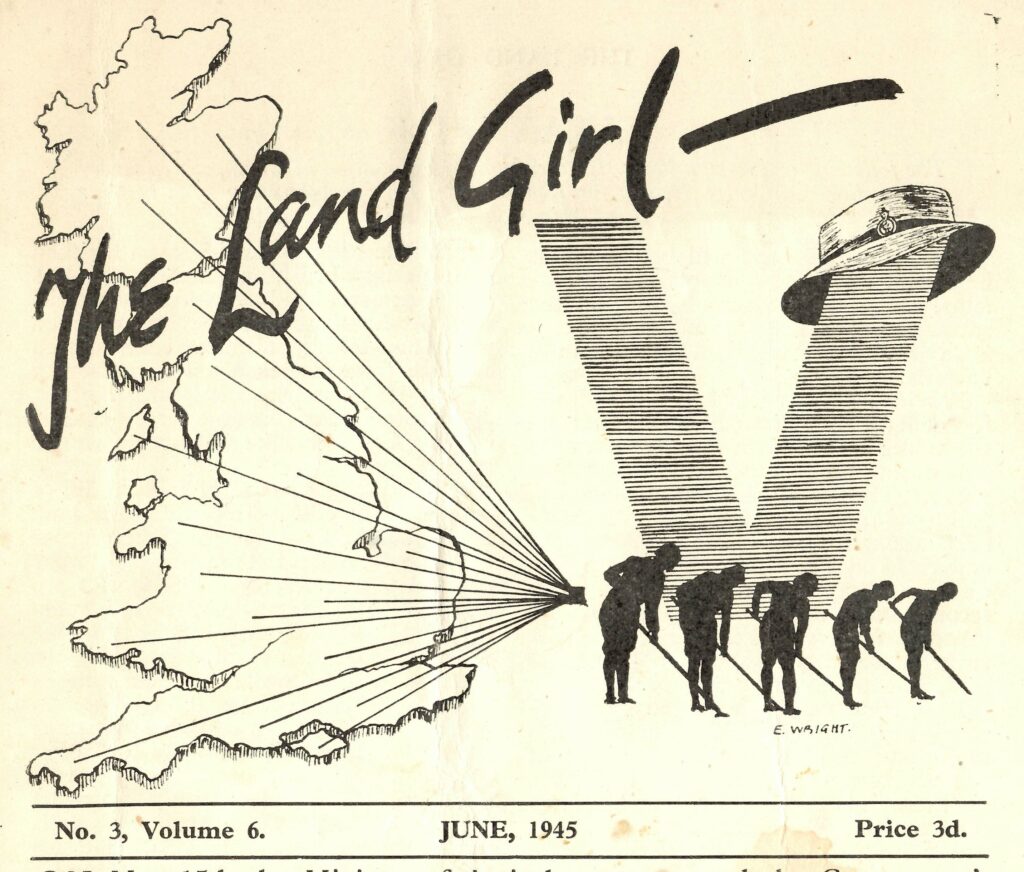
80 years on, as celebrations take place up and down the country, we remember the incredible dedication which Land Girls and Lumber Jill showed to their country. It seems fitting on such an occasion that we end this post with the poignant words of Hilda Gibson. Her evocatively-titled poem, ‘Remember Us’, encapsulates many of the experiences of former Land Girls and Lumber Jills.
Back when life was black and white and not a thousand shades of grey,
A call went out for girls like us to join the W.L.A
To be alive at such a time meant living was intensified,
New tasks – new hardships – joy and pain distilled into a sense of pride.
We looked within ourselves and found a person we had never known
With qualities of inner strength, an independence newly grown.
From urban life to rural fields, from office, factory and shop
Replacing men who left to fight and trust to us each season’s crop.
Remember us? We worked long days till hands were rough and backs were sore,
Giving our all and finding strength each day to give a little more.
But rising in the morning mist and toiling in the summer haze.
This time was ours – a job well done – we will remember all our days.
By Dr Cherish Watton-Colbrook, WLA Historian and founder of www.womenslandarmy.co.uk.
Many thanks to Vicky Iglikowski-Broad, Principal Records Specialist – Diverse Histories at The National Archives, for sharing Ethel Wright’s WLA index record card with me.
